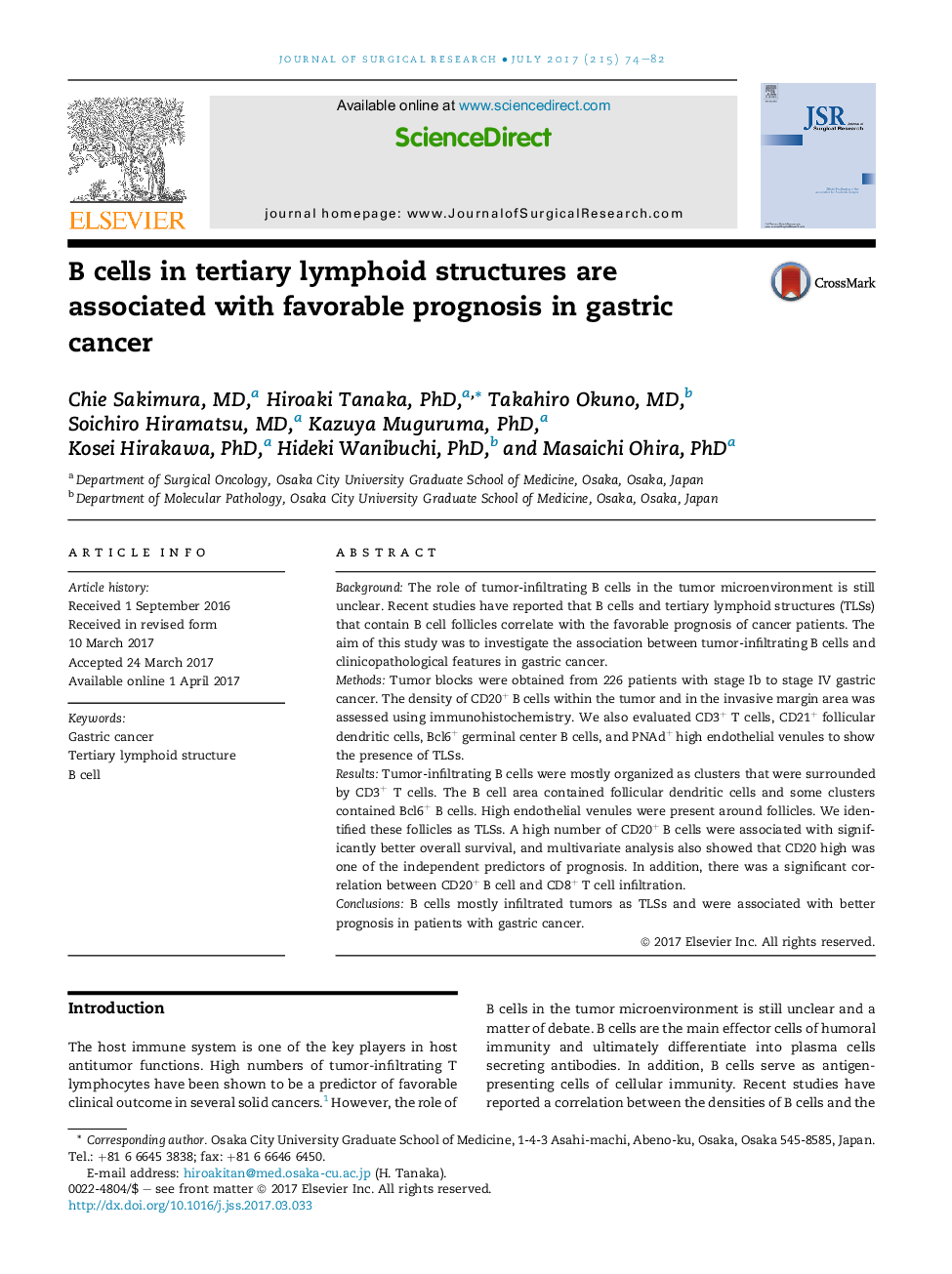| Article ID | Journal | Published Year | Pages | File Type |
|---|---|---|---|---|
| 5733727 | Journal of Surgical Research | 2017 | 9 Pages |
BackgroundThe role of tumor-infiltrating B cells in the tumor microenvironment is still unclear. Recent studies have reported that B cells and tertiary lymphoid structures (TLSs) that contain B cell follicles correlate with the favorable prognosis of cancer patients. The aim of this study was to investigate the association between tumor-infiltrating B cells and clinicopathological features in gastric cancer.MethodsTumor blocks were obtained from 226 patients with stage Ib to stage IV gastric cancer. The density of CD20+ B cells within the tumor and in the invasive margin area was assessed using immunohistochemistry. We also evaluated CD3+ T cells, CD21+ follicular dendritic cells, Bcl6+ germinal center B cells, and PNAd+ high endothelial venules to show the presence of TLSs.ResultsTumor-infiltrating B cells were mostly organized as clusters that were surrounded by CD3+ T cells. The B cell area contained follicular dendritic cells and some clusters contained Bcl6+ B cells. High endothelial venules were present around follicles. We identified these follicles as TLSs. A high number of CD20+ B cells were associated with significantly better overall survival, and multivariate analysis also showed that CD20 high was one of the independent predictors of prognosis. In addition, there was a significant correlation between CD20+ B cell and CD8+ T cell infiltration.ConclusionsB cells mostly infiltrated tumors as TLSs and were associated with better prognosis in patients with gastric cancer.
